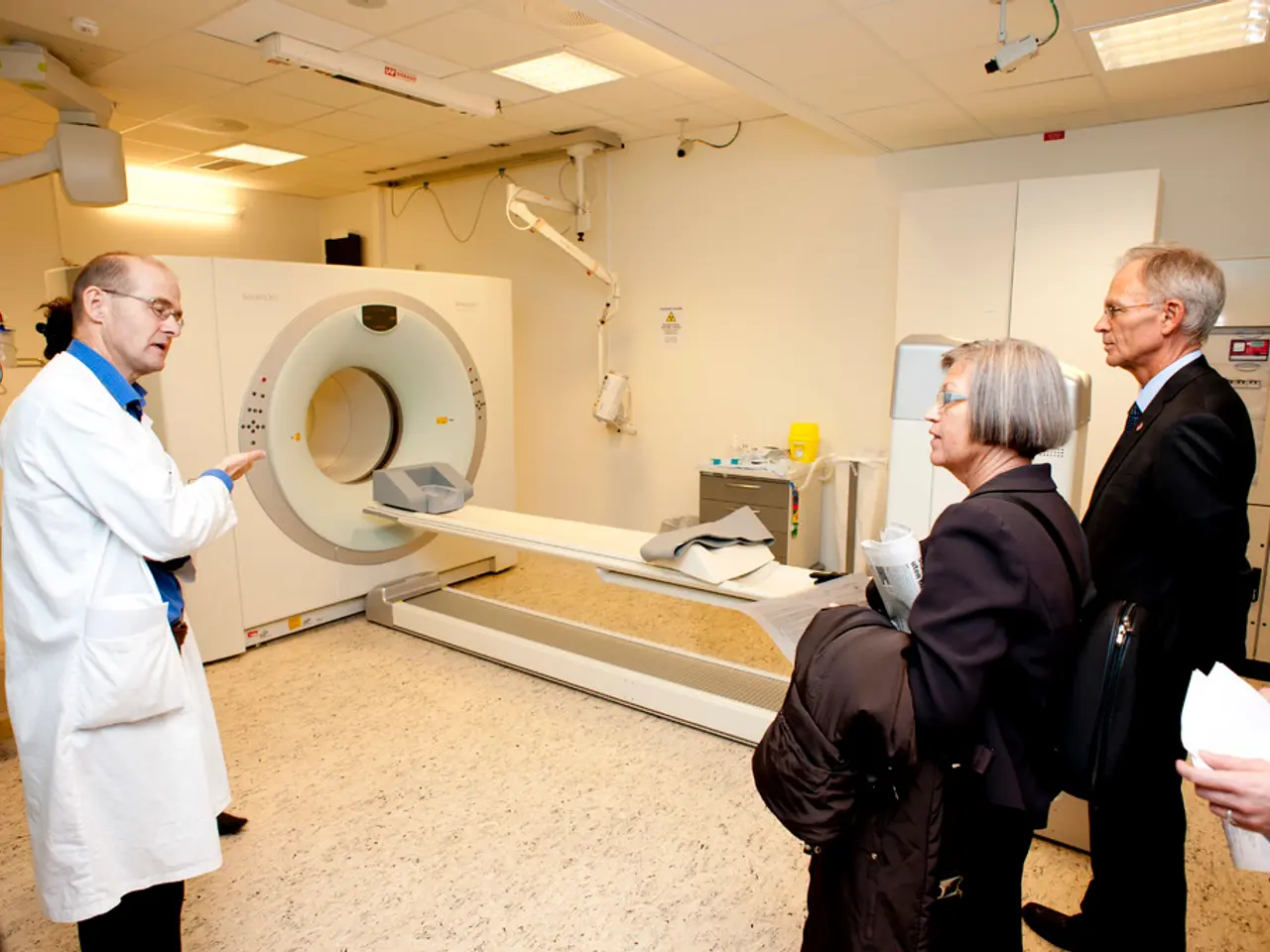Autoimmune diseases: Their Symptoms, Signs, and Remedies
Autoimmune diseases are a group of more than 100 conditions where the immune system, designed to protect the body, instead attacks healthy cells and tissues. These diseases can affect various systems in the body, including the skin, blood, digestive system, hormones, nervous system, and joints.
Hashimoto's thyroiditis, for instance, is an autoimmune condition that causes the thyroid gland to produce less thyroid hormone, leading to symptoms such as fatigue, constipation, weight gain, heavy menstrual periods, sensitivity to cold, joint pain, and can be treated with a daily dose of levothyroxine. On the other hand, Graves' disease causes the thyroid gland to become overactive and produce too much thyroid hormone, resulting in symptoms like heat sensitivity, muscle weakness, insomnia, irritability, weight loss, light menstrual periods or no period, bulging eyes, shaky hands, and racing heartbeat. Treatment options for Graves' disease include antithyroid medications, radioactive iodine, and in severe cases, removing part or all of the thyroid gland.
Scleroderma, a less common autoimmune disease, causes an abnormal growth of connective tissue in the skin and blood vessels. It can affect internal organs and be life-threatening. Unfortunately, there is no current cure for scleroderma or celiac disease.
Vitiligo, another autoimmune disease, occurs when the immune system attacks melanocytes, the cells that produce skin pigment. This results in patches of skin losing their colour. While vitiligo is not harmful to the body, it can be distressing, especially for those with darker skin.
Inflammatory bowel disease (IBD) causes chronic inflammation of the digestive tract, leading to symptoms such as abdominal pain, diarrhea, and weight loss. Type 1 diabetes is a condition where the immune system attacks the cells in the pancreas that produce insulin, leading to high blood sugar levels. Unlike type 2 diabetes, type 1 diabetes cannot be prevented by diet or lifestyle changes.
Autoimmune diseases can present in different ways and vary in ease of diagnosis. Certain diseases, such as psoriasis and scleroderma, primarily affect the skin and may be diagnosed by dermatologists. However, other conditions may require input from several healthcare professionals to reach a correct diagnosis.
Common treatments for autoimmune diseases focus on controlling inflammation and suppressing the overactive immune response. These treatments include corticosteroids, immunosuppressants or cytotoxic drugs, disease-modifying antirheumatic drugs (DMARDs), and newer targeted therapies like biologics and JAK inhibitors. Alongside medications, functional and nutritional medicine approaches focus on holistic management by addressing underlying triggers and immune imbalances. Diets like the Autoimmune Protocol (AIP), Mediterranean, or Autoimmune Paleo can reduce inflammation and improve symptoms by eliminating food triggers and promoting nutrient-dense intake.
While there is no cure for many autoimmune diseases, with proper treatment and management techniques, many are not fatal, and people can live long, active lives. For example, psoriasis treatments include biologics, methotrexate, topical ointments, and UV light therapy. Similarly, symptoms of type 1 diabetes can be managed with daily insulin injections.
It's important to note that certain factors increase the likelihood of developing an autoimmune disease. These include being female and having a family history of autoimmune diseases.
In conclusion, autoimmune diseases are a diverse group of conditions that can affect various parts of the body. While there is no cure for many of these diseases, effective management often combines medications, lifestyle changes, and dietary modifications to reduce symptoms and prevent long-term damage.
- Diabetes is a chronic disease that occurs when the immune system attacks the cells in the pancreas that produce insulin.
- Spondylitis, a type of arthritis, is an autoimmune disease that affects the joints, particularly the spine.
- Psoriatic arthritis is an autoimmune disease that affects both the skin and the joints, causing inflammation and pain.
- HIV is not an autoimmune disease, but it can lead to a suppressed immune system, making individuals more susceptible to other immune-related diseases.
- Depression is not an autoimmune disease, but it is often associated with chronic illnesses, including autoimmune diseases.
- Ankylosing spondylitis is a type of inflammatory arthritis that primarily affects the spine, but can also involve other joints and organs.
- Rheumatoid arthritis is a systemic autoimmune disease that primarily attacks the joints, causing pain, swelling, and damage.
- Systemic lupus erythematosus (SLE) is an autoimmune disease that can affect multiple organs, including the skin, joints, kidneys, and brain.
- Crohn's disease is an inflammatory bowel disease (IBD) that affects the digestive system, leading to chronic inflammation, diarrhea, and other symptoms.
- Celiac disease is an autoimmune condition that causes the immune system to react to gluten, leading to damage to the small intestine.
- Predictive modeling in medical science is used to help identify individuals at high risk of developing autoimmune diseases, such as type 1 diabetes or rheumatoid arthritis.
- It's important for individuals with chronic diseases like diabetes, migraine, or psoriasis to prioritize health and wellness, making lifestyle changes and seeking appropriate medical treatment to manage their conditions.




